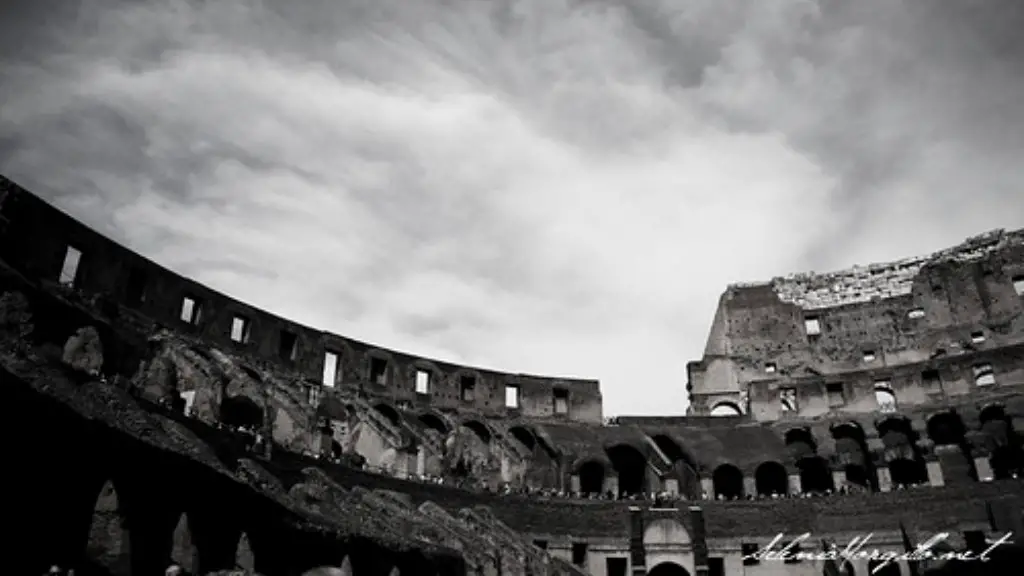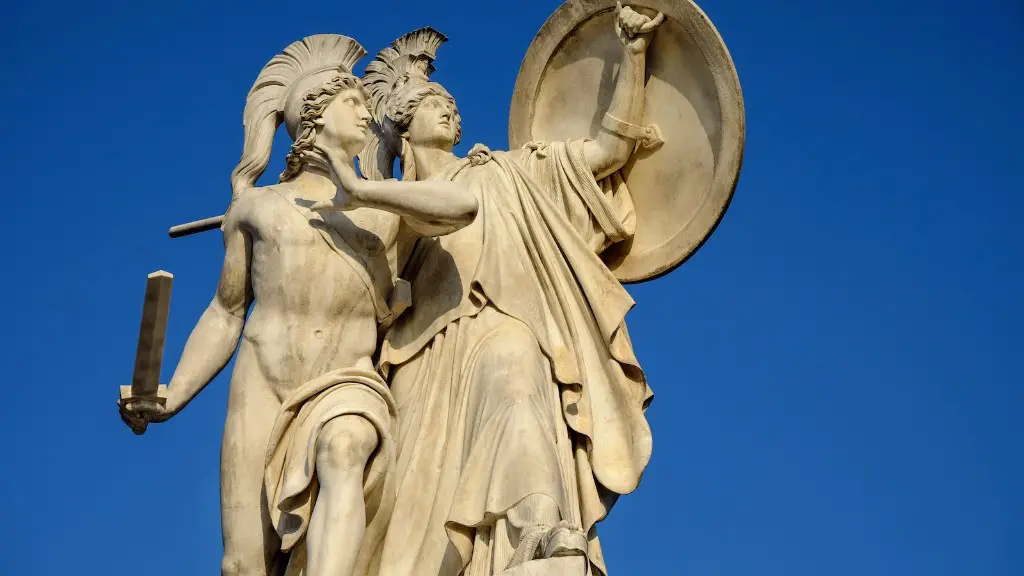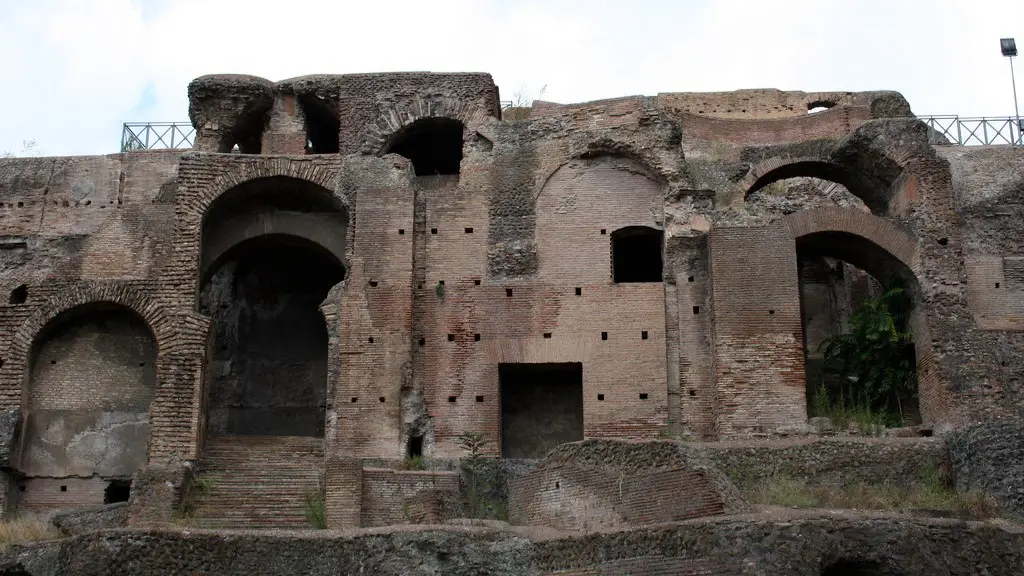Ancient Rome was one of the most powerful civilizations of its era and its remains can still be seen around the world today. As a result of its diverse population and its far-reaching political and economic control, much of our modern societies find traces of the Roman culture in many aspects or our lives. But what exactly did they do, how did they live, and what were their biggest accomplishments? This article will provide an overview of all things Roman and explore the many lasting contributions they left behind.
Rome’s Collapse
The Roman Empire began its downfall in the 2nd century AD, and the last official emperor, Romulus Augustus, withdrew from power in 476 AD. Several factors contributed to Rome’s collapse, such as the military campaigns and civil unrest throughout the Empire. In addition, Rome was unable to maintain control of its increasingly vast territory as migration from the northern European tribes spread across the land. Finally, the impact of Christianity, which promised hope to many of Rome’s citizens and joined together people of all classes in a single faith, also played a role in Rome’s eventual fall.
Rome’s Legacy in Government and Law
One of the main legacies of Ancient Rome can be seen in our governmental and legal structures. The Roman Republic was characterized by the notion of separation of powers, with government divided into two branches, the legislative and the executive. The Roman Senate was a powerful body composed of members chosen by the leading men in the city. Rome was also one of the first civilizations to codify its laws, using a system of written statutes known as the Twelve Tables. The basis of many of the world’s legal systems can be traced back to Roman Law.
Influence of Roman Language
The Latin language remains a part of our daily lives even today. Many words of the Latin language have stuck around for centuries and have come to characterize our dress, politics, and other aspects of our society. Latin continues to be used in the scientific and medical fields, and it remains a major influence on the Romance languages. The Latin Alphabet forms the basis for many of today’s Western alphabets and is also used in several non-Latin based languages.
Religion and mythology
Religion and mythology were an integral part of Rome’s development and their religion, the Roman Pantheon, is still the official religion in several modern countries. At the same time, the Christian Church, founded in the early centuries AD, began to take an influential role in everyday life and was eventually recognized as the official faith by the Roman Empire in 330 AD.
Roman Art and Architecture
The Romans developed a unique style of building and artwork that continues to influence the world today. One of the most famous monuments of Ancient Rome is the Colosseum, a magnificent amphitheater that still stands today and is one of the most visited sites in the world. The Romans were also skilled painters and sculptors, and their art can be seen in places like the Vatican museums. In addition, the mosaics, frescoes, and reliefs of Ancient Rome are admired to this day.
Roman Literature
The sheer number of Ancient Roman writings that have survived to this day is incredible. Authors such as Virgil, Ovid, and Cicero wrote extensively about philosophy, public life, law, and religion. In addition, many of the stories we know today, such as the Iliad and the Odyssey, first entered Europe through Roman translations. Roman literature also served to influence modern literature, and its influence can be seen in works such as Dante’s Inferno and the stories of Shakespeare.
City Planning and Engineering
The Roman city planning system is still in place around the world today. Many of the modern roads, bridges, and public baths inherited their shapes from Roman models. The intricate system of aqueducts and sewers designed by the Romans provided efficient and reliable paths of water transportation and ensured the health of their citizens. The siege of Masada, where Jewish forces held out against the Roman army, demonstrated the genius of Roman engineering, as they made use of scientific methods and mathematics in order to overtake the defensive position.
Military and Warfare
The Roman army became legendary throughout the world, producing some of the most powerful and successful warriors in history. They deployed their troops in a systematic and tactical manner, which made their military campaigns extremely successful no matter where they went. Their methods of defending against sieges, storming forts, and conducting naval battles remain studied to this day as an example of tactical warfare. As a result, their military success spread the Roman culture throughout the world.
Economic System
The economy of Ancient Rome was heavily dependent on its expansion and colonization, and the population of Rome extravagantly and unapologetically consumed goods from all over the world. Taxes were imposed on the conquered territories in order to finance the construction of roads, walls, and public buildings throughout the Empire. Slavery played an important role in the Roman economy and in the daily lives of the citizens. In addition, trade and commerce thrived, with the merchants and traders of Rome taking advantage of the bustling markets of the Mediterranean region.
Cultural Contributions
Rome’s culture was varied and highly influential on many aspects of Western societies. Latin remained the most important literary language in Europe until the Renaissance and its influence on other languages is still strong. Sports were a part of daily life, and gladiatorial games were common spectacles. Rome also greatly contributed to the fields of science, with great minds such as Claudius Ptolemy and Marcus Terentius Varro developing theories and establishing foundations for the scientific method.


